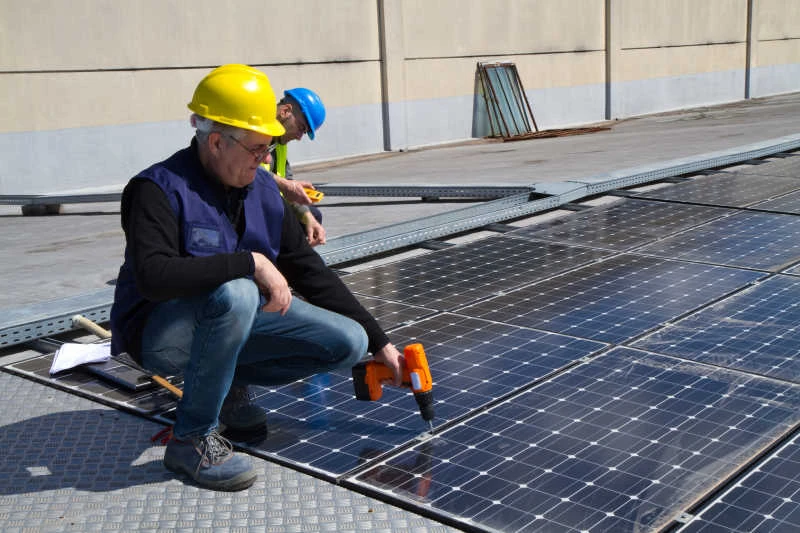kwh per solar panel
Understanding kWh per Solar Panel Maximizing Solar Energy Efficiency
As the world shifts towards renewable energy sources, solar power remains at the forefront of this revolution. Solar panels are increasingly being adopted for residential and commercial energy needs, providing a sustainable alternative to fossil fuels. One critical aspect that homeowners and businesses must understand when investing in solar technology is the concept of kWh per solar panel.
What is kWh per Solar Panel?
kWh, or kilowatt-hour, is a unit of measurement that quantifies energy consumption. In the context of solar power, kWh per solar panel refers to the amount of energy produced by a single solar panel over a specific period, typically measured in hours. This metric allows consumers to evaluate the efficiency of their solar panels and helps in determining the potential energy savings and return on investment.
Solar panels convert sunlight into electricity through photovoltaic cells. The efficiency of these panels can vary significantly based on factors such as technology, orientation, location, and even shading from trees or buildings. On average, a standard residential solar panel can produce anywhere from 250 to 400 watts under optimal conditions, translating to varying kWh outputs.
Factors Influencing kWh Output
Several factors influence the kWh output of a solar panel
1. Panel Efficiency The efficiency rating of a solar panel, typically ranging from 15% to over 22%, significantly impacts energy production. Higher efficiency panels can generate more electricity from the same amount of sunlight.
2. Sunlight Exposure The geographic location of a solar installation plays a crucial role in the amount of sunlight received. Areas with abundant sunshine, such as Southwestern U.S. states, will yield higher kWh production compared to regions with frequent cloud cover.
3. Orientation and Tilt The angle and direction at which a solar panel is installed can affect its exposure to the sun. Panels facing south (in the Northern Hemisphere) at an optimal angle can capture more sunlight throughout the day.
kwh per solar panel

4. Temperature Paradoxically, while sunlight increases energy production, higher temperatures can reduce a solar panel's efficiency. Most panels operate optimally at temperatures around 25°C (77°F).
Average kWh Production
To provide a clearer picture, let's break down some averages. A typical 300-watt solar panel in a location that receives about 5 hours of direct sunlight per day could produce approximately 1.5 kWh per day. Over a year, this results in around 547.5 kWh, underscoring the long-term benefits of solar energy.
For optimal performance, a solar panel system should be tailored to meet specific energy needs. Homeowners typically consider installing a series of panels, and by multiplying the average kWh output per panel by the number of panels, they can estimate the total energy production of the system.
Benefits of Understanding kWh per Solar Panel
Understanding kWh per solar panel empowers consumers. It allows individuals to
- Evaluate System Size By knowing the energy demands of their home and the output of each panel, consumers can select the appropriate number of panels to meet their needs.
- Financial Planning Awareness of potential energy production helps in estimating savings on electricity bills, enabling better financial planning and investment decisions.
- Informed Maintenance Regular monitoring of energy output can alert owners to any potential issues with the panels, prompting timely maintenance to ensure optimal efficiency.
In conclusion, understanding kWh per solar panel is essential for anyone considering a transition to solar energy. With the right knowledge and planning, solar panels can significantly contribute to energy independence, lower utility costs, and a reduced carbon footprint, making them a smart choice for the environmentally conscious consumer. As technology advances and more efficient panels are developed, the future for solar energy looks brighter than ever.
-
String Solar Inverter: The High-Efficiency Solution for Smart Solar EnergyNewsJul.14,2025
-
Revolutionizing Rooftop Energy with the Power of the Micro Solar InverterNewsJul.14,2025
-
Power Independence with Smart Off Grid Solar Inverter SolutionsNewsJul.14,2025
-
On Grid Solar Inverter: Powering the Future with Smart Grid IntegrationNewsJul.14,2025
-
Monocrystalline Solar Panels: High-Efficiency Power for the Future of Clean EnergyNewsJul.14,2025
-
Bifacial Solar Panel: A Smarter Investment for Next-Generation Energy SystemsNewsJul.14,2025







